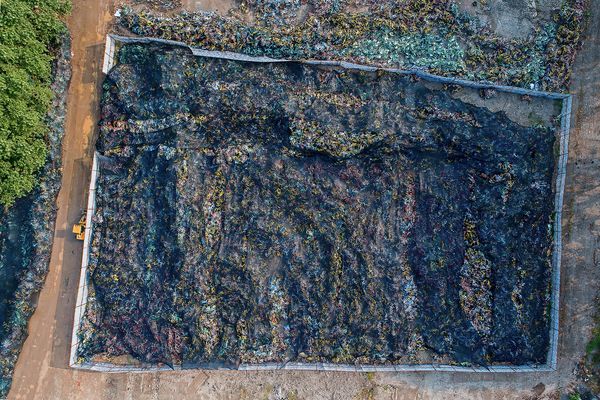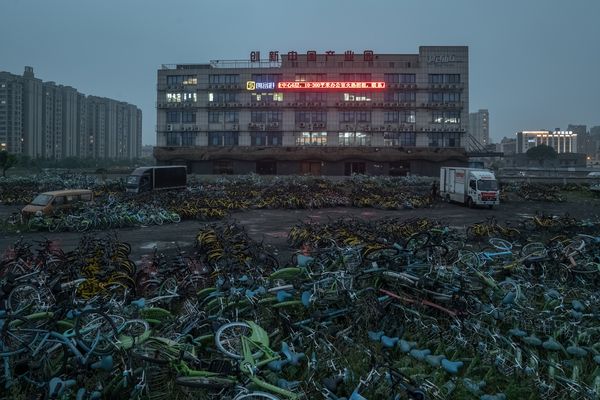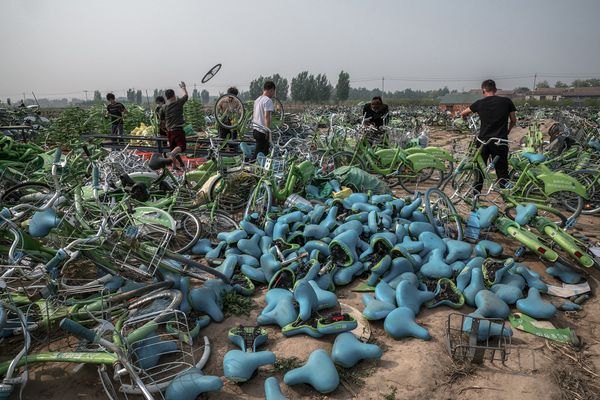No Place to Place
-
Dates2017 - 2018
-
Author
Bicycle sharing, known as one of China's "New Four Major Inventions" originated during a period of mass entrepreneurship and innovation. In May 2015, the first dockless shared bicycles were introduced on the campus of Peking University. The concept behind bicycle sharing, "Green Travel" and solving the “Last Mile” problem was widely welcomed. Various capitalists, sensing the market potential of bicycle sharing, rushed into it business. Soon a shared economy storm swept across China. In just over two years, more than 70 shared bicycle companies had sprung up. These companies raised more than 10 billion US dollar in financing and placed around 27 million shared bicycles in major cities in China. Each shared bicycle brand used a distinct color to differentiate its bicycles from competitors. In core areas of big cities the sheer quantity of shared bicycles soon began overwhelming public space.
Originally the government was laissez-faire about the cluttered streets and even encouraged bicycle sharing. They did not realize the seriousness of the issue until September 2017 when the government started to limit the number of bicycles deployed and placing excess bicycles in temporary locations. Such hidden locations are hard to be found in cities and have earned the name “shared bicycle graveyard". Many of the shared bicycles got damaged during the settlement process. The relationship between the government and shared bicycle companies has thus turned sharply.
As the government moves to clamp down on the explosion of shared bicycle, a lot of brands, including 3Vbike, Goku, Dingding, Xiaolan, Kuqi and Xiaoming, have claimed bankruptcy or closed operations of their own accord. Now, only a few companies are still operating. Hundreds of millions of dollars of customer bike deposits cannot be refunded.
The project started in January, 2018. After gathering information from online and offline resources, I’ve travelled to almost every major city where bike sharing went crazy and recorded what I’ve witnessed in (aerial) photos, videos and VR. On the morning of July 26, 2018, this video was launched by Sohu Portal Network of China, which immediately triggered a crazy forwarding of Chinese and foreign media. The number of Internet clicks has exceeded 300 million. Thousands of citizens commented on the Internet to express their opinions, forming a phenomenal media dissemination event. The Chinese government has since improved the management of shared bicycles focusing on supervising operators to reduce their own bicycles in the market and strengthen the recycling of damaged bicycles.
On November 16th, 2018, the photographer won the "Annual Visual Award" from 2018 Tencent Media, hosted by Tencent, China's largest Internet company. Until the end of 2018, most of the shared bicycle cemeteries photographed by photographers have disappeared.
After the storm people had to think deep and hard on the current Chinese economy, resources, environment and human society.



















